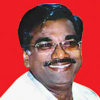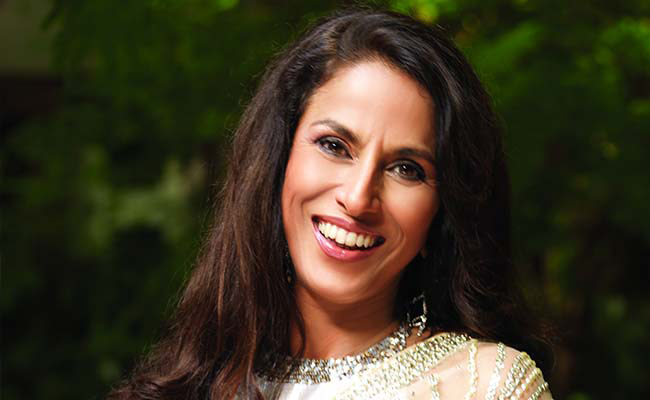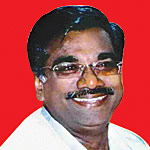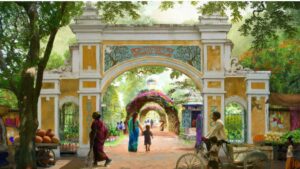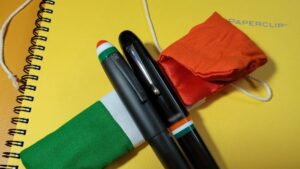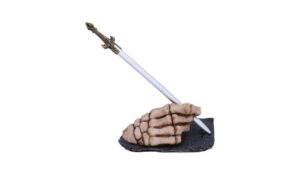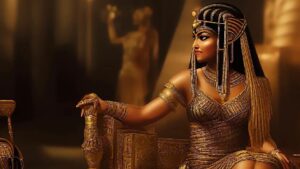Two decades ago, a stranger was found wandering in the premises of the college where I rendered my service as an English teacher. He became the target of attraction and when asked he claimed that he was from the Pune Film Institute, and that he was looking for the right sort of people who could assist him in making a documentary on Pondicherry. He was straight away whisked into the Department of History and on further enquiry my friends from that department sought my help. Since I was introduced as a writer and local historian, I thought I should play my role faithfully and so I volunteered to help him.
“Call me Dr Sen,” he said as he pillion rode my motorcycle. On my way home, he talked a lot about the peaceful and serene Pondicherry and what inspired him to take up such a project. He added that his crew was on the way and that the shooting would start in a day or two.
Once inside my house, his eyes widened at the sight of my personal library. He began moving from one shelf to another reading out the titles here and there. He stopped at a shelf and said, “Oh! You seem to be a great fan of Irving Wallace. You have all his works here?”
“Yes! I have read every one of them. It is sheer joy to read him,” I said, but did not expect Dr Sen to pull out Seven Minutes, The Man, The Word, all my favourites. He tucked them under his left arm and said he was going to read them that night.
“When will you return them?” I asked with the sense of possession. He replied, “Certainly tomorrow morning when we meet. My eyes love books rather than sleep.” He then boasted of his huge collection of books in his palatial house in Delhi.
After snacks and tea, I took him to the seashore for a stroll. “You are writing the script for my documentary. No excuse please. Your library speaks volumes about your calibre as a writer, though I have not read any of your writings,” Dr Sen said abruptly. Pleased with such a compliment, my eyes looked gratefully at him. Perhaps to add to my joy, he said: “You will be amply paid for your work”.
After an hour or so of useful discussion I left him in his room at the Govt. Guest House and invited him to come home for lunch on the next day.
Back home, I told my wife and children about the fortune that was shining on me and the huge amount and indescribable fame this script would fetch me. They were prepared to wait and watch. The next day being Saturday, Dr Sen reached my house at about one in the afternoon and returned the books he borrowed. I was happy that the books came back in the same shape they went out.
After lunch, he evinced a keen interest in my rare books. By rare books, he meant the ones published a hundred years before or gone out of print.
“Most of my books are quite old for they are bought from used bookshops. Yet I have a small section that contains really precious books,” I said and offered to show him.
Dr Sen pulled a chair and sat near the precious books and handled them as if they were babies. He selected six of them and sought my permission to take them to his room for reading and promised to return them on the morning of the next day when I would be introduced to his crew. I magnanimously allowed him to carry an English translation of the famous erotic French work Les cent Nouvelles Nouvelle, Kama Sutra of Vatsayana and The Perfumed Garden of Sheik Nefzavi, both in Sri Richard Burton’s translation, and three-volume reference edition of World Mythology.
The next day being Sunday, I got up unusually a bit early and started jotting down points for discussion with the crew about the documentary to be filmed, arranged all the papers in a neat folder and showed it to my wife and beamed with a smile. “It is all money!” I said and expected from her a pat on my back. “I see!” she said and disappeared into the kitchen to prepare my breakfast.
Exactly at ten I entered the Govt. Guest House, expecting the crew and a vast crowd ogling at them. But the room occupied by Dr Sen stood locked. I met the manager and asked the whereabouts of Dr Sen.
“Dr Sen? Nobody stays here by that name,” he said.
“No. I met him yesterday in that room,” I said, pointing at the locked room.
“Oh, You mean, Sanjay! He left Pondicherry by five in the morning. By the way are you Dr Raja?” He asked. I nodded an yes. “Here is a parcel for you,” so saying he handed over a paper bag containing books. I heaved a sigh of relief for I was sure that the bag contained the books I lent him. When I was about to kick start my motorcycle, the manager said, “Sanjay is a collector and seller of rare books from Bombay. He is no doctor”.
I tore open the bag in a hurry. I had the shock of my life. The bag contained six novels of Shobhaa De. Did I unknowingly barter her for my rare books?
I told the entire story to my wife and children. They laughed. I too joined them. What else I could do?



